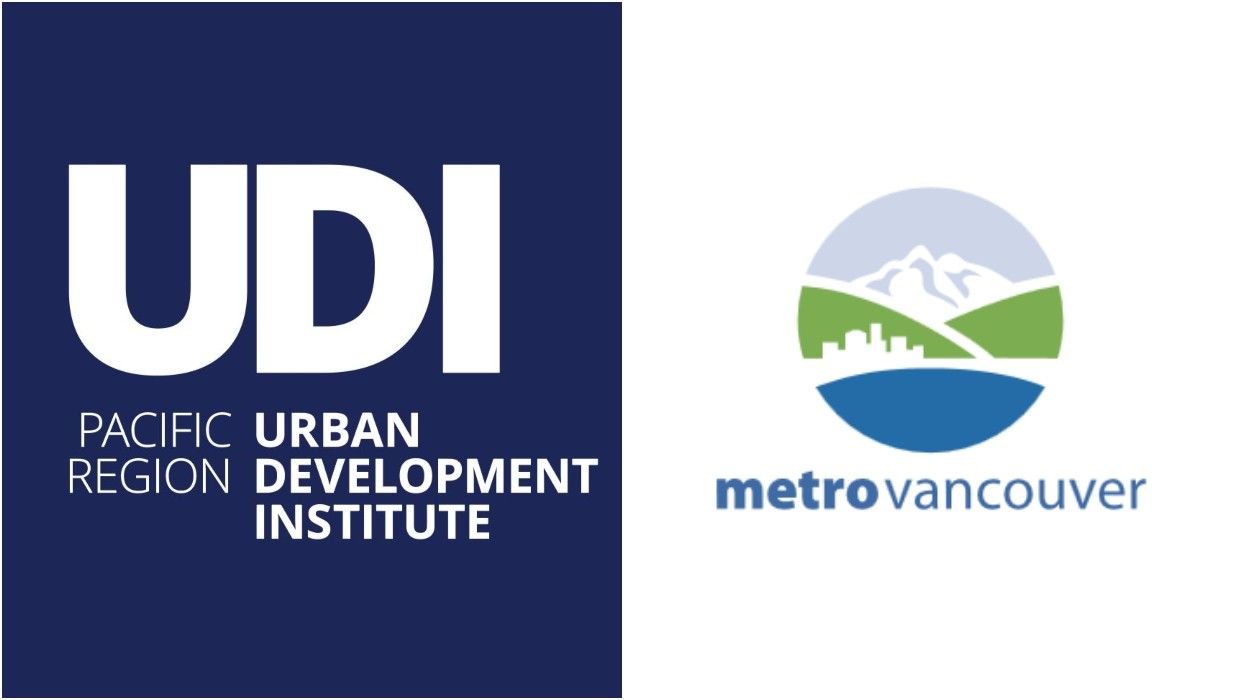The increases to development cost charges (DCCs) that have been proposed by the Metro Vancouver Regional District (MVRD) have already drawn the ire of federal Minister of Housing Sean Fraser, and are now drawing further ire from the Urban Development Institute, which represents the development industry and its interests.
"On behalf of the Urban Development Institute and its members, we are outraged with the proposed updates to the Metro Vancouver Development Cost Charge (DCC) program," UDI President and CEO Anne McMullin said in a letter seen by STOREYS. "We urge the Metro Vancouver Board not to approve these changes."
The letter is addressed to the Metro Vancouver Regional District Board and Chair George V. Harvie — the Mayor of Delta — and is dated October 24.
The proposed rate increases would affect the longstanding liquid waste DCC, the water DCC implemented in April 2023, as well as a new DCC for park acquisitions, all three of which the MVRD would charge on all residential and non-residential development in the region. Similar to DCCs charged at the municipal level, these DCCs are used to pay for new infrastructure needed to support the region's growth.
The increases would be implemented in phases across several years, with the ultimate goal of lowering the "assist factor" for each of them to 1%. Currently, the assist factor for the liquid waste DCC and water DCC are 17.5% and 50%, respectively, which means that 82.5% and 50% of the capital costs related to liquid waste and water infrastructure projects are funded through the DCC.
All in all, the proposed changes could result in increases of over $20K for single-detached homes and townhouses, and nearly $15K per unit for multi-family buildings. (A more thorough breakdown can be found here.)
"These increases are so substantive, it will take years for the land market to adjust, delaying the ability of our members to buy sites and initiate housing projects," UDI says. "If builders have already purchased sites, the impacts will be even more severe because adjustments cannot be made to accommodate the new costs, and projects will be deferred until prices/rents increase for new homes."
In the letter, UDI also points out that the new capital projects being proposed by MVRD — that the DCCs would fund — don't just benefit new homeowners and renters, yet they are the ones who will have to cover most of the costs.
Metro Vancouver has voiced a reluctance to increase the tax burden on existing residents — the flip-side of charging developers DCCs — and the proposed increases are backed by the belief of Metro Vancouver — and others — that growth should pay for growth.
UDI is now calling for a review of MVRD's finances.
"Given the clear and immediate need to increase the supply of housing in this region and make it more affordable, UDI feels that it is necessary for the Province to conduct a review of the Metro Vancouver Regional District’s capital investments and how it proposes to meet the region's infrastructure needs," the letter reads.
UDI says it recognizes MVRD's concerns over rising capital costs, with combined capital plans for water, sewage, and park acquisitions totalling nearly $34.5B, but that they are nonetheless concerned because the projected costs have increased by over $3B in the past two years.
They say they're also concerned with ongoing projects, such as the North Shore Wastewater Treatment Plant. In a project update on October 4, Metro Vancouver said that they have established a task force to review various options to complete the project, with the review expected to be completed by mid-2024.
"Numerous design and construction errors and deficiencies were identified from the previous contractor, who was responsible for both designing and building the new treatment plant," Metro Vancouver said. "Over the past several months we have been working to correct these deficiencies and advance the design in order to develop an accurate schedule and cost estimate to complete the project." The project is now being advanced by PCL and AECOM.
Another significant point of UDI's grievance is with the public engagement sessions that were held in late September. UDI says it participated in those engagement sessions with Metro Vancouver staff, but feel like the process and comment period were rushed and that they were not given enough time to "properly outline the true financial impacts of these new changes."
The proposed changes were then brought to the MVRD Finance Committee less than four business days after the engagement period concluded and in-stream protections for projects already underway were not clearly communicated.
"We do not feel that the engagement that Metro Vancouver conducted was meaningful or that the concerns of the industry nor the new residents that this DCC update is targeting were adequately assessed," McMullin writes in the letter. "We reinforce the need to pause the proposed Metro Vancouver DCC increase, which would provide the opportunity for the re-evaluation of how these large capital projects are being delivered and funded, and whether other governance structures could more effectively deliver infrastructure projects at the scale of Metro Vancouver's Capital Plan."
Asked to respond to UDI's letter, Jerry Dobrovolny, Commissioner and Chief Administrative Officer of the MVRD told STOREYS that Metro Vancouver works with the provincial government and follows a provincial process regarding DCCs, but did not address the aspect of capital investments.





















